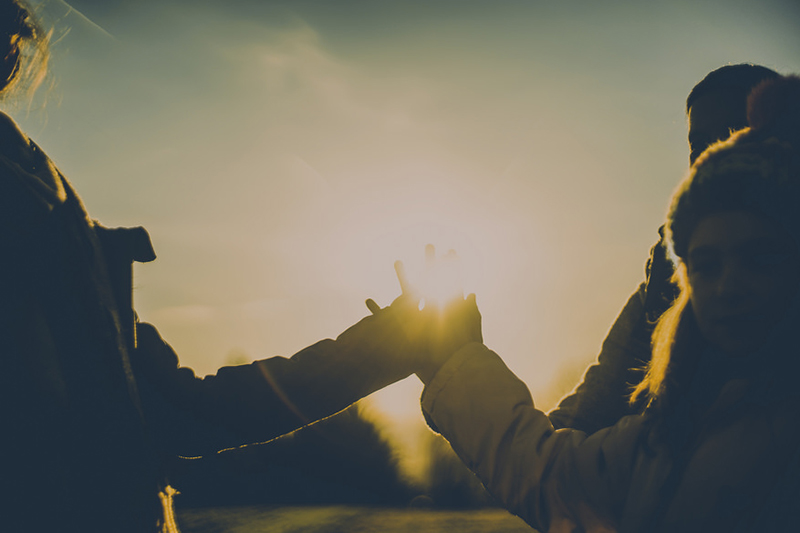“Tomorrow, female blackout…”
A writer friend sent the missive Saturday evening. The next day, women were to change their Facebook profile pictures to a simple, black square to illustrate to men what a day without women would look like. The scheme was billed as an effort to draw awareness to domestic abuse.
Sure, I thought, I’ll do it. If there was ever a time for us to band together, the time is now. I passed along the instructions to a number of women friends and replaced the sunny photo of me hiking with my husband with darkness in solidarity with my sisters.
Or so I thought.
Rather than seeing this stark united front as empowering, many took it as another way to silence women and erase our experiences. One friend, an author and comic, wrote poignantly on her Facebook page of abuse that began when she was 13 at the hands of a church elder. When she was five, she watched as a man threw her mother down a flight of stairs. There was more, but the point is my friend remained silent for a very long time about these travesties and finds it far more powerful now to speak out rather than disappear, even if only for a day. “I am not blacking out my profile pic,” she wrote, “because I’m still here. And so are you.”
Another friend, a television screenwriter, vowed never to be silent and invisible. “Now more than ever, I need to keep making noise… I refuse to ever black out, back down or silence my voice.” Both these friends expressed solidarity with the women who were blacking out. They were without judgment and were cognizant of the good intentions and sentiment behind the exercise.
A third friend, an actor who initially was open to blacking out her profile pic, had a change of heart, passing along this from an acquaintance who’s a comedian, radio and TV personality: “Stop sending me black your profile and be silent bull—t… Will the woman who came up with this please check herself…”
Okay, so that response wasn’t quite as compassionate and understanding as the first two and contained some pretty blatant finger-pointing. But it gave me a lot to think about, including the ways in which we use our privilege to “help” a cause without thinking our actions through in a logical, mindful and sensitive way.
Most women I know have been triggered in some way after details of the accusations against Brett Kavanaugh became known. Indeed, whenever a new #MeToo scandal breaks, many of us are flooded with unpleasant, even terrifying, memories. We walk around for days with stomachs churning and nerves rattling as we once again relive the most distressing truths of our past.
There is much wisdom to the notion that women should not be relegated to the sidelines, especially when it comes to domestic violence and sexual assault. We must find a way for these moments in time to be galvanizing rather than causing conflict and division. That doesn’t mean we have to act alike, think the same or express ourselves in identical ways.
Blackouts, marches, and sit-ins all have their place. There is room for diverse forms of protest and advocacy; it would behoove us to get, if not on the same page, at least into the same notebook. The anonymity of arguing with friends of friends on social media is example enough that we are not there yet. Rhetoric, partisanship, name-calling and even faux Christianity, I hear you loud and clear. I don’t understand why you support Brett Kavanaugh, but please be nice about it.
During the Senate’s questioning of Dr. Christine Blasey Ford, Sen. Cory Booker called her a hero for stepping up to tell her story in such a humiliating and public arena. (I love that he said “hero” and not “heroine.”) Dr. Ford and the protestor who confronted Sen. Jeff Flake in an elevator with calls to “Look at me when I’m talking to you” are the heroes we need today. It is phenomenal that women whose names we’d never heard before have become beloved symbols of bravery overnight, giving us courage to speak up as well.
I should have more fully considered the impact and the history of muteness in social movements late on Saturday night, after a dinner party, when I blithely posted the dark, voiceless square on my Facebook page. I agree with my friends that our voices must be heard, that we must be seen, and that we let abusers know they will no longer be protected by our silence.
We will not look the other way, and we will never shut up.
